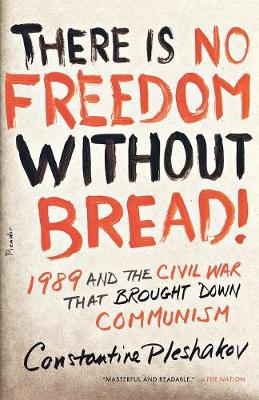The conventional story of the end of the cold war focuses on the geopolitical power struggle between the United States and the USSR: Ronald Reagan waged an aggressive campaign against communism, outspent the USSR, and forced Mikhail Gorbachev to 'tear down this wall'. In "There is No Freedom without Bread!", a daring revisionist account of that seminal year, the Russian-born historian Constantine Pleshakov proposes a very different interpretation. The revolutions that took place during this momentous year were infinitely more complex than the archetypal image of the 'good' masses overthrowing the "bad" puppet regimes of the Soviet empire. Politicking, tensions between Moscow and local communist governments, compromise between the revolutionary leaders and the communist old-timers, and the will and anger of the people - all had a profound influence in shaping the revolutions as multifaceted movements that brought about one of the greatest transformations in history.
In a dramatic narrative culminating in a close examination of the whirlwind year, Pleshakov challenges the received wisdom and argues that 1989 was as much about national civil wars and internal struggles for power as it was about the Eastern Europeans.
- ISBN10 0312655339
- ISBN13 9780312655334
- Publish Date 28 September 2010 (first published 27 October 2009)
- Publish Status Active
- Imprint Picador USA
- Format Paperback (US Trade)
- Pages 304
- Language English
